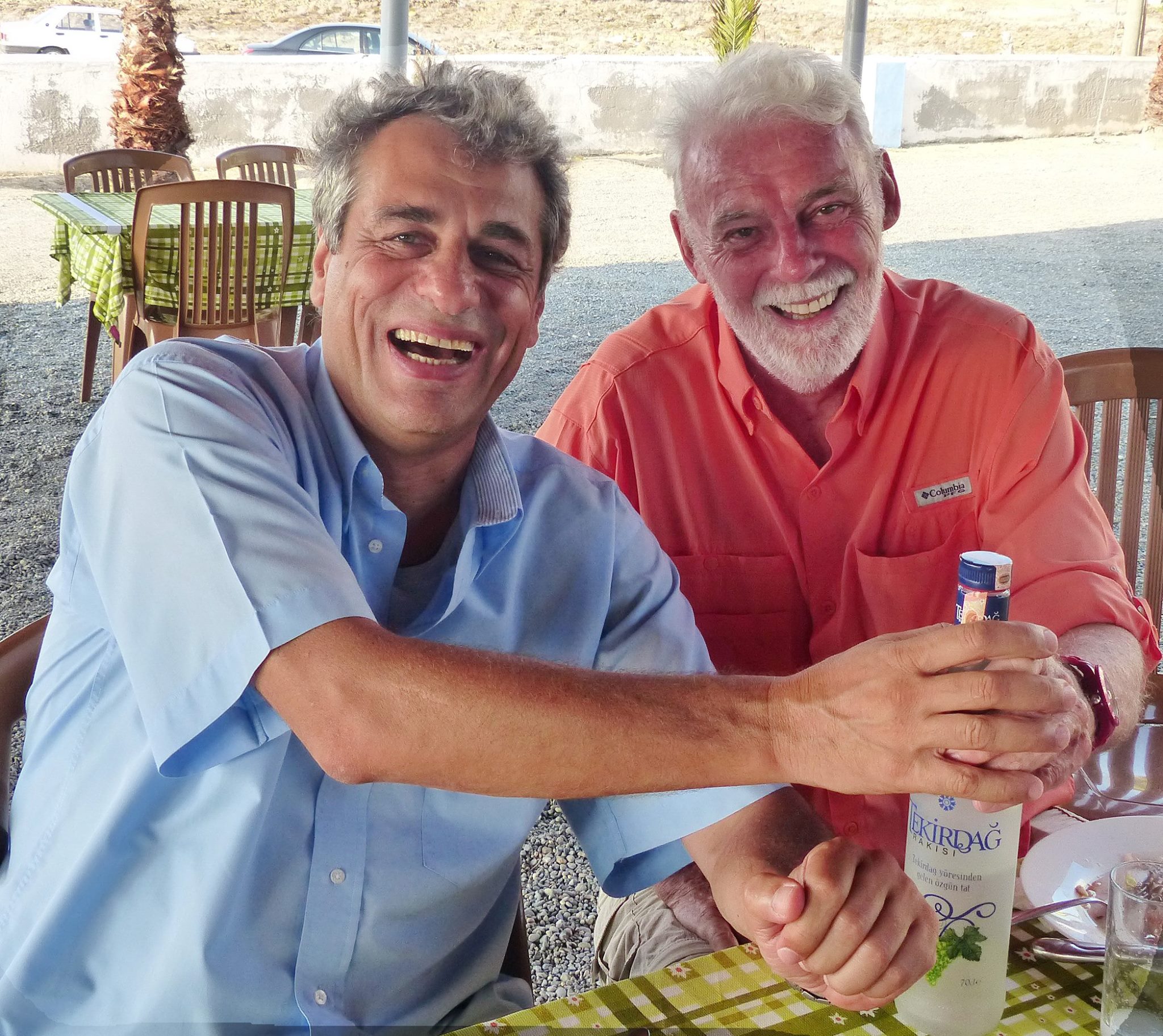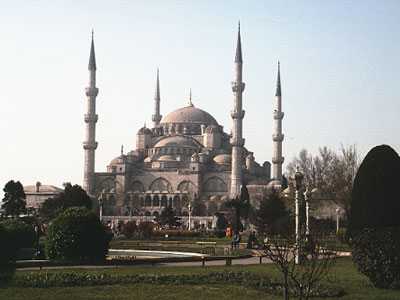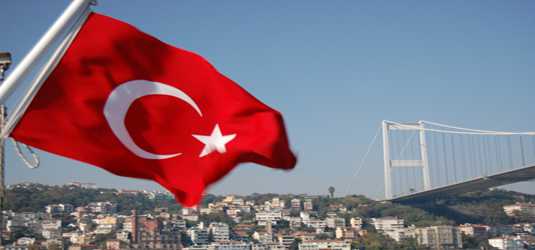Interview: ‘Obama Is Certainly A European’

Oxford historian Timothy Garton Ash discusses the demise of Europe’s social democrats, threats to the European Union posed by populist nationalists, the imminent change of government in Great Britain and America’s rapid slide to the left.
SPIEGEL: Professor Garton Ash, in the midst of the worst economic crisis since the Great Depression voters have turned away from the social democrats and socialists in European elections. Isn’t this paradoxical?
Timothy Garton Ash: I think there’s an explanation for it. First, voters apparently feel that the conservatives and liberals are more competent when it comes to economic policy. Second, we are witnessing a return to nationalism as a reaction to the great crisis. And when that happens, voters tend to move to the right rather than to the left, in some cases quite far to the right.
SPIEGEL: It would seem that leftists, the critics of capitalism, would stand to benefit from a crisis of capitalism.
Garton Ash: In essence, you have two social democratic parties in Germany, just as we do in Great Britain – with some minor differences. David Cameron’s Conservatives are taking (former Prime Minister) Tony Blair’s approach, except when it comes to European policy. And there is no decisive difference between the Christian Democrats and the Social Democrats in Germany, at least not by the standards of the last century.
SPIEGEL: In other words, we lack ideological differences, and we are all social democrats?
Garton Ash: I think so. We are not talking about capitalism as such, but about the question of which form of capitalism works best in our country. And then there is the question of competency. Our governments are behaving more and more like managers. After 10 years, voters are dissatisfied with the current management, and along comes a new one.
SPIEGEL: The left lost its identity as a result of politicians like Tony Blair and (former German Chancellor) Gerhard Schroder, who believed in the free market and abandoned old social democratic principals. Isn’t that the reason for their defeat throughout Europe?
Garton Ash: I don’t think so. In each case, the voter is voting for a version of European social liberal democracy. Perhaps a party that calls itself conservative can provide him with the better social democracy.
SPIEGEL: At least 15 percent of the new European parliament will consist of right-wing extremists, protest parties and joke parties. What does this mean for Europe’s future?
Garton Ash: If I remember correctly, Bertolt Brecht said: “The womb is fertile still, which bore this fruit.” We are deluding ourselves if we believe that the temptation of xenophobia and national populism no longer exists, and we shouldn’t be surprised to see these forces being strengthened in the course of a major economic crisis. We must make the social market economy credible again as the central solution for the middle class.
SPIEGEL: How?
Garton Ash: There are two major domestic policy challenges for the European Union. First: Creating meaningful work for the majority of society. And second: the integration of fellow citizens of non-European descent. These are two sides of the same coin. After all, what are the populists and xenophobes saying, from Latvia to Portugal, and from Finland to Greece? They are saying: We’re in bad shape, and the others are at fault. Both parts of that sentence must be addressed politically.
SPIEGEL: In Great Britain, the racist British National Party has won two seats for the first time.
Garton Ash: The same thing also happened in Romania, Finland and Hungary. There are comparable developments everywhere. Until now, the Conservatives in Great Britain have always managed to neutralize the extreme right, just as the CDU/CSU has done in Germany. This time, not only has the BNP won its first two seats, but the anti-European U.K. Independence Party (UKIP) has even won more votes than Labor. Now that’s unsettling.
SPIEGEL: Do the successes of right-wing extremists and the defeat of the left also indicate a decline in solidarity among voters?
Garton Ash: Solidarity is certainly a European value, but our willingness to display solidarity also has narrow limits, especially toward the poor, and even more so when they are of non-European origin. This stems partly from the fact that we have developed social welfare states that are difficult to sustain, especially in global competition. The integration of immigrants in the United States is easier, because there is no social welfare state there.
SPIEGEL: While Europe slips to the right, the United States, under Barack Obama, is discovering the social market economy – and is slipping to the left.
Garton Ash: Soon they’ll be more European than we are.
SPIEGEL: How do you explain that?
Garton Ash: Six years ago, we had the manifesto of Jurgen Habermas and Jacques Derrida in connection with the discussion of the Iraq crisis, pitting Europe, with its socially progressive values against the United States. In that respect Obama, in terms of his system of values, is certainly a European. This is because the middle class in the United States has experienced the brutality and injustice of the unbridled Anglo-Saxon free market economy firsthand – in the healthcare system, for example.
‘The True European Elections Will Take Place in Germany in September’
SPIEGEL: The election was a European election, and yet Europe wasn’t really the issue at all. Instead, the election was about national politics. Does this demonstrate that Europe is not united at all, but in fact divided?
Garton Ash: I like to say that the true European elections will take place in Germany at the end of September. The German parliamentary election is certainly more important for the future of the European Union.
SPIEGEL: Why?
Garton Ash: At issue is the behavior of the most important member of the European Union, which is obvious. The competencies of the European Parliament have certainly grown, and I believe that voters underestimate its true influence. Nevertheless, the European Union is no direct democracy, nor will it become one anytime soon. I believe that voters sense this, and in this regard their behavior is completely rational.
SPIEGEL: The competencies of the European Parliament have been expanded, partly in the hope that this would increase voter turnout, and yet it was lower than ever this year.
Garton Ash: I believe that voter turnout will not improve in the foreseeable future, at least not as long as we are not prepared to take the big step toward a United States of Europe, and toward direct democracy. Almost nowhere in Europe are we prepared to do this. The parliament will remain a part of the European system, but the decisive elements will continue to be the European Council, the council of ministers and the cooperation among democratically elected governments.
SPIEGEL: Doesn’t the voters’ lack of interest show that political Europe has disengaged itself from its citizens?
Garton Ash: I believe that the European project is a victim of its own success. In each country, the pro-European argument, all national differences aside, took the same form: We were doing poorly, but thanks to Europe our lot will improve. But then comes the moment when we take Europe for granted, which raises the question: What is the purpose of this Europe?
SPIEGEL: And what is it?
Garton Ash: We need, for example, a common European foreign policy, so that we can defend our interest in an increasingly non-European world.
SPIEGEL: Are the words of Henry Kissinger still applicable …?
Garton Ash: … who was searching for a phone number for Europe? I believe, by the way, that he never said that. We did a lot of research at this university and were unable to find a source for the quote. In the end, I wrote to Henry Kissinger myself, and asked: Where did you say this? His response was wonderful. He wrote: I think I must have said it. I just don’t remember when and where. Of course, there is a kernel of truth to the remark. From Washington’s standpoint, or from Beijing’s or Moscow’s, Europe does not exist as a foreign policy player. And we must begin to exist.
SPIEGEL: Do you really believe that Germany or France would give up its own foreign policy? Don’t national interests always trump European interests?
Garton Ash: Why always? Why should something that was true in the past continue to apply in the future? The deutsche mark was the epitome of German identity, and yet the Germans gave it up. The history of the European Union over the last 50 years is a history of impossible things that happened, after all.
SPIEGEL: And how do we arrive at a common foreign policy?
Garton Ash: We don’t need a United States of Europe for that. What we need, most of all, is the political will of a strategic coalition of member states. It must include Germany, France and Great Britain, but others, as well. When that happens, it will be possible to pursue a common foreign policy.
SPIEGEL: But there is a big difference between giving up a currency and giving up one’s own foreign policy. Economically speaking, the Union is accepted as a success story, but political Europe is criticized. In Great Britain and Eastern Europe, skeptics of the European Union are calling for a return to a purely economic union.
Garton Ash: We already have a common foreign policy in the E.U. today – with regard to Tehran’s nuclear program, for example. And it is also accepted by the public. Now it is time to explain why it makes sense to pursue a common Russia policy, or a China policy, and why we are stronger together than individually.
SPIEGEL: Isn’t it a vote of no confidence against Europe when voters elect someone like the Romanian Paris Hilton, the president’s daughter, Elena Basescu, to the parliament, as well as Sweden’s Pirate Party, and jokesters and odd characters like Austrian populist Hans-Peter Martin?
Garton Ash: This is an indication of two things. First, voters are saying to themselves that the European Parliament isn’t all that important, so we can afford to elect a couple of pirates. Second – and this is something we see everywhere in Europe – there is a growing, deep dissatisfaction with the political class, to the point of a pre-revolutionary mood. The scandal over the expense accounts of British politicians we are currently experiencing is only one example among many.
SPIEGEL: What is the source of this deep dissatisfaction?
Garton Ash: I keep hearing the same thing from a wide range of people throughout Europe: The parliament is a self-service shop, and the political class is merely there to pursue its own interests.
SPIEGEL: But that view is borne out by the scandal surrounding British members of parliament who used government funds to buy plasma TVs and porn films.
Garton Ash: It’s really more complicated than that. The reason for this scandal is that politicians, almost 30 years ago, lacked the courage to approve better pay for members of parliament. That’s why they created this absurd system of so-called expenses, which were in fact allowances. As a result, all MPs became expense knights. And some of them were even real knights, right?
SPIEGEL: At the moment, it looks as though David Cameron will be the next British prime minister.
Garton Ash: Indeed.
SPIEGEL: Cameron is threatening to hold a referendum over the Lisbon Treaty. That would be a declaration of war on Europe. Do you think he’ll do it?
Garton Ash: If you were to inject a truth serum into David Cameron, he would probably have to confess to his secret hope that the treaty will be ratified by then. Then the referendum would no longer be necessary. I believe that, deep in his heart, he is not a euro-skeptic when it comes to Europe. The majority of his MPs and his foreign policy spokesman, William Hague, are euro-skeptics out of conviction. He has to use this rhetoric, especially because the UKIP did so well in the European election. And that’s why it is important for the European Union that the end of the Gordon Brown administration be drawn out for as long as possible.
SPIEGEL: Cameron is now trying to forge an alliance with Polish and Czech opponents of Europe in the European Parliament.
Garton Ash: Farce begets farce. Unfortunately, the man carelessly stated a position on the question of the European Parliament in 2005, when he was fighting for the leadership of the Conservatives. Aside from that, though, he learned an important lesson from Blair: Never commit to anything. But that’s why he must now remain true to himself, and is thereby compromising the British Conservatives. Suddenly they’re in bed with Latvian friends of the Waffen SS, Polish homophobes and Czech deniers of climate change.
SPIEGEL: Is Gordon Brown truly, as they say, the worst British prime minister since Neville Chamberlain?
Garton Ash: By no means. He isn’t a bad prime minister, as far as the content of his policies is concerned. I don’t know if the inexperienced David Cameron would have handled this major crisis more effectively. But as a personality, Brown is undoubtedly one of the weakest politicians. He makes one mistake after the next. He lacks the talent to sell his policies. He looks ridiculous when he tries in vain on YouTube, where he looks like a grandfather, to sell the people a solution to the expenses affair. He is hampered by the machinery of politics.
SPIEGEL: Does he lack the charisma?
Garton Ash: He lacks it completely. He hasn’t even managed to simply come across as a direct and upright character, which is something Angela Merkel has mastered. He could have been the Scottish Mr. Merkel. But he’s too Blairist for that. He wants to manipulate public opinion, and perhaps the worst thing is to try and fail in that endeavor.
SPIEGEL: Who is responsible for the demise of New Labor? Tony Blair or Gordon Brown?
Garton Ash: If this is its death, then it certainly had a nice life. In fact, it was quite successful: three legislative periods in a row, which is something Labor didn’t manage in 100 years. Besides, the Labor government is leaving behind a fairly substantial legacy – including Conservatives, who for the better part have adopted New Labor’s approach.
SPIEGEL: Couldn’t Labor be successful again, after all, perhaps with Alan Johnson as a new party leader?
Garton Ash: As a historian, I know that everything is possible in history, except cheating death. But I would bet a bottle of champagne that even the best Labor leader in the world will not win the next election.
SPIEGEL: What kind of a bottle?
Garton Ash: A magnum bottle, I would say.
You can read this Spiegel interview with Historian Timothy Garton Ash in context here:
www.spiegel.de/international/europe/0,1518,631359,00.html
This interview was in German, it was translated from the German for Spiegel by Christopher Sultan.
Source: www.reeinternetpress.com, 21.06.2009
 With its stunning vistas and former Ottoman palaces, the banks of the Bosphorus – the strategic waterway that cuts Istanbul in half and divides Europe from Asia – may be the perfect place to distinguish friend from foe and establish where your country’s interests lie.
With its stunning vistas and former Ottoman palaces, the banks of the Bosphorus – the strategic waterway that cuts Istanbul in half and divides Europe from Asia – may be the perfect place to distinguish friend from foe and establish where your country’s interests lie.




